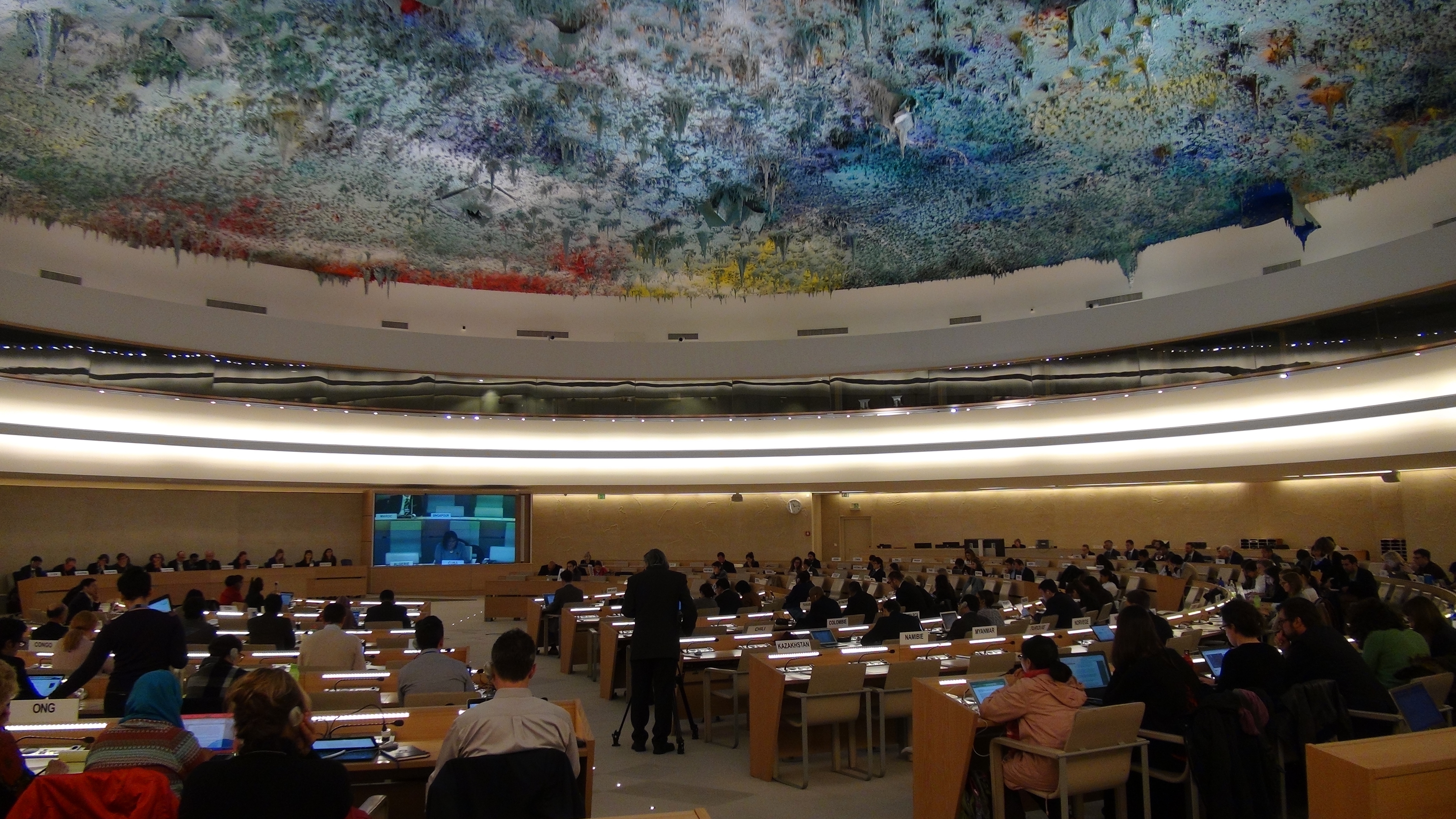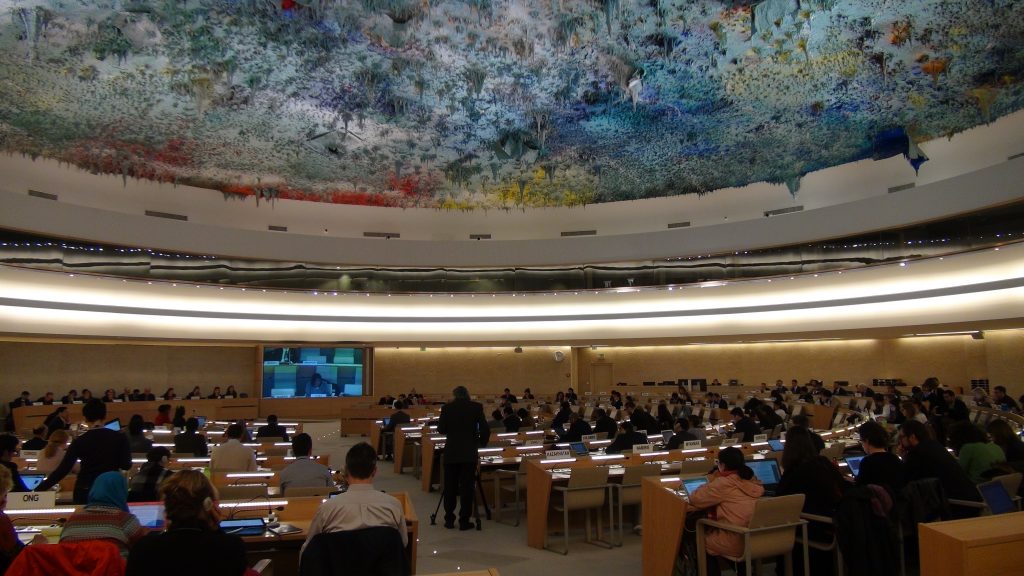
Substantive discussions on the Treaty’s purpose, scope and general obligations finally took main stage in the second day of sessions. The EU spoke on behalf of the 28 Member States with questions and concerns rather than proposals. Interventions were in general vague and lacked depth, satisfactory for a warm-up session yet will need to become more pragmatic and constructive in the coming days.
The second day finally saw the real kick-off of substantive discussions on the elements of a future Treaty on business and human rights. As suggested the day before, the EU Delegation took part in the discussions with comments and mainly questions on the elements, which had been pre-agreed by the 28 Member States. After the heated discussions of the first day, the second day found delegates more reluctant to break the ice. Some of them, including the EU and Russia, reiterated their reservations with the overall process at every possible occasion.
Reaffirming the supremacy of human rights, a challenge of the XXI century
Discussions on the first item arouse around two main issues, namely extraterritoriality and the provisions on the supremacy of human rights over trade and investment agreements. The latter found clear opposition among a majority of Delegates, with the EU speaking on behalf of the 28 member States and both Singapore and Mexico questioning the legal foundation and implications of such provisions. On the other side, Bolivia, Ecuador and the vast majority of oral statements from civil society stood up for the supremacy of human rights, providing clear arguments from international law.
A CIDSE oral statement co-signed with SOMO, Global Policy Forum, CCFD-Terre Solidaire among other organisations pointed out that, given the ample evidence of frequent conflicts between States’ human rights and trade or investment obligations, the issue can no longer be left in the hands of those designing economic policies. The Chairperson-Rapporteur admitted being shocked by the fact that reaffirming human rights protection over economic and investment interests raised doubts in the twentieth century. Not surprisingly, given the active role of the EU in advancing the free trade agenda, the delegation also stressed its concern over the implications of human rights supremacy for current and future trade negotiations.
“Transnational” or all business enterprises? The issue of scope continues to split the room
The next item addressed was the key issue: the scope of the treaty in terms of companies covered. The topic still causes disagreement among States and civil society. The debate was overall pragmatic. Some States simply pointed out the lack of clarity in the draft text. Others, such as Brazil, agreed with the need for the Treaty to address the specific complexities linked to transnational activities whilst also including domestic enterprises.
The recurring debate of the international obligations of business enterprises
The panel introducing the last issue of the day, (Obligations of States, Companies and International Organisations) was itself dynamic. Representatives of employers and of workers sat on both sides of academic experts. The International Organization of Employers representative came to affirm that human rights obligations on business would discourage foreign direct investment; statements which provoked the surprised reaction of the speaker for unions during its turn. Further debate was prevented by the already long delay that the session had accumulated. The main issue of disagreement remains the possibility and desirability of the Treaty imposing direct international obligations for companies.
Published with the kind support of ECCJ.

